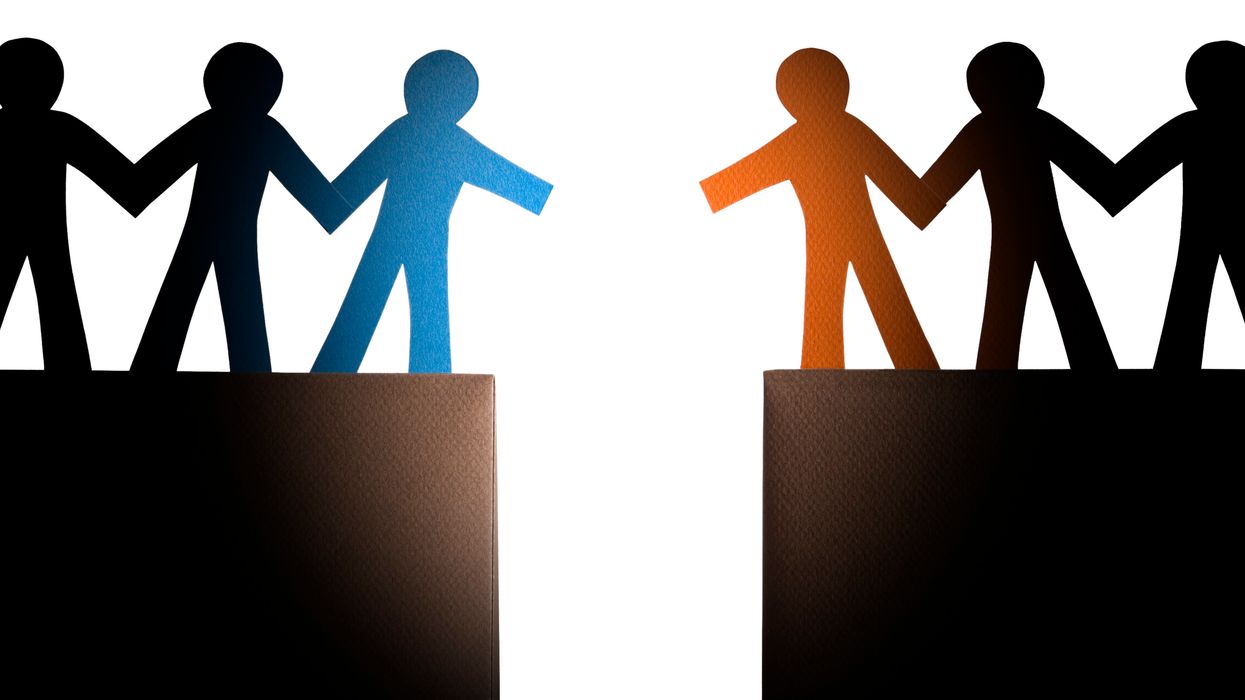Harwood is president and founder of The Harwood Institute. This is the latest entry in his series based on the "Enough. Time to Build.” campaign, which calls on community leaders and active citizens to step forward and build together.
Just recently I was interviewed by Judy Woodruff for her series “America at a Crossroads” on “PBS NewsHour.” In response to a question about how we address our big national divisions, I said this: “If we can get on a civic path, we can actually make progress. Not only can we make progress, we can push out the culture wars. We can push out the [divisive] politics that are seeping in [to our local communities].”
Making the case for a new civic path is at the core of our “Enough. Time to Build.” campaign.
In recent weeks, I’ve been everywhere from Rep. Jim Jordan’s district in Ohio to Stamford, Conn. Fresno, Calif., to Burlington, N.C. Flint, Mich., to Pensacola, Fla., which just so happens to be Matt Gaetz’s congressional district. Most recently, I was in Colorado, speaking in both Fort Collins and Loveland. It just so happens Loveland is in the district where Rep. Lauren Boebert is running to replace retiring Rep. Ken Buck.
Why is this campaign the only one being invited to communities across the political spectrum? Because Americans of all backgrounds — no matter who you vote for these days — are tired of our divisive politics. They are hungry for an alternative but don’t see a clear path forward.
The presidential race consumes most news coverage these days with topics like court battles, opposition research and what the third party candidates are up to. It all begs the question: Does all the noise really matter to people’s daily lives? In my 35 years working to revitalize and strengthen communities in all 50 states, I’ve seen the American people go from being fed up with politics in the 1990s to seeing politics as largely irrelevant today.
This is why Americans have such a yearning for a real alternative. But it’s fair to ask, “Why is this campaign working?”
I think the answer is clear. It’s not because of me. Rather, it’s because Americans of all political persuasions want to put our country on a new trajectory of hope. Look again at the places I listed. This campaign isn’t going to just red or blue strongholds. Nor am I just in battleground states looking for elusive swing voters. Consider one recent stretch where I went from Rep. Matt Gaetz’s district in Florida to Stamford to Loveland. You can’t get a much starker sequence of red, blue and battleground than that.
What’s also notable about the communities where I’m taking this campaign is that they run the gamut from struggling to rapidly growing to stagnated. Yet each is wrestling with deep fault lines.
Stamfordis f acing widening inequities and disparities and its growing Latino population and working families are at risk of being left behind. In Loveland, the toxic national discourse is increasingly seeping in and infecting their public square. Fort Collins has experienced rapid growth that’s putting pressure on housing affordability and access to resources for new and long-time residents. Pensacola is in danger of being consumed by book banning debates even as their local schools struggle to ensure students acquire basic reading skills.
My point is this: In every case, these communities have invited our campaign because they have come to see it’s time to embrace a new civic path forward that enables us to address what matters to people. Perhaps even more importantly, they see it as essential to strengthening their civic culture. The relationships, norms, networks and sense of shared purpose that determine our ability to take action on the issues that really matter to people, make room for all voices, and create a greater sense of connection and belonging.
Through this campaign, I continue to meet more and more community leaders and active citizens who recognize that the answers to what ails us are within our local communities. Within each of us.
Everywhere I travel these days, when I lay out this alternative civic path, community leaders and active citizens inevitably join me in saying, “Enough. It’s time to build.” One leader in Burlington put it this way after hearing me make the case for a new civic path: “It’s the actions of local citizens that are really going to be the catalyst for the change we want to see. I came out of tonight with a sense of hope that this is work that we can do here. It’s really the most significant work we can do.”
That’s the mindset — and the action — that forging a civic path has the power to unleash.




















